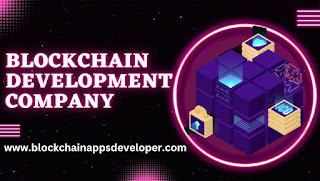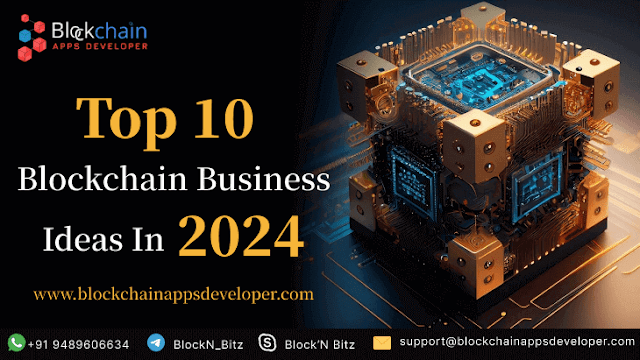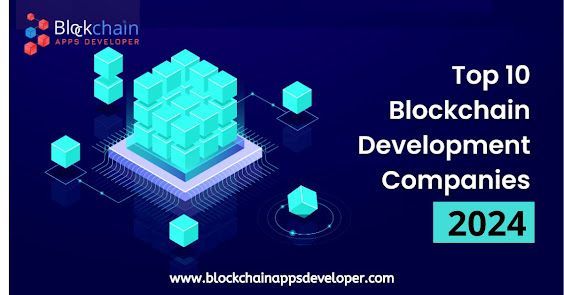Demystifying Blockchain Development: Building the Future of Decentralization
Introduction
In the rapidly evolving landscape of technology, one revolutionary concept has captured the imagination of developers, entrepreneurs, and innovators worldwide – blockchain. Beyond its association with cryptocurrencies, blockchain technology is disrupting industries and transforming the way we envision security, transparency, and decentralization. In this blog, we will delve into the world of Blockchain Development, exploring its fundamental components, real-world applications, and the skills required to embark on this transformative journey. In this blog more informations and guides about blockchain development for your business.
What is Blockchain Development?
Blockchain development refers to the process of creating and maintaining blockchain-based applications, protocols, and systems. A blockchain is a distributed and decentralized digital ledger technology that records transactions across a network of computers in a secure, transparent, and tamper-proof manner. It's most commonly associated with cryptocurrencies like Bitcoin, but its applications extend far beyond that.
Blockchain Development Overview:
At its core, blockchain is a decentralized digital ledger and distributed which records all the transaction information across a network of computers. It assures 100% security, immutability, and transparency via cryptographic techniques. Blockchain development involves crafting applications, protocols, and systems that leverage this technology to create innovative solutions.
Stunning Features of Blockchain Development Services
Smart Contracts: These are self-executing contracts with the terms directly written into code. They automatically execute and enforce the terms of an agreement when predefined conditions are met. Ethereum is a popular platform for creating and deploying smart contracts.
Consensus Mechanisms: Blockchain technology networks rely on consensus mechanisms to agree on the validate transactions & state of the ledger. Common mechanisms include Proof of Work (PoW) and Proof of Stake (PoS), among others.
Decentralization: Unlike traditional centralized systems, blockchain networks are decentralized, which means no single entity has complete control over the network. Developers need to design protocols that maintain the integrity and security of the network.
Data Encryption: Security is a crucial aspect of blockchain development. Encryption techniques are used to secure data, private keys, and transactions to prevent unauthorized access.
Tokenization: Developers often create tokens or digital assets on blockchains. These tokens can represent ownership of assets, access rights, or other forms of value. Examples include non-fungible tokens (NFTs) and utility tokens.
Networking: Blockchain Development involves designing and implementing the network infrastructure that enables communication and data sharing among nodes (computers) in the blockchain network.
User Interfaces: Creating user-friendly interfaces for interacting with blockchain applications is an essential part of development. This includes web and mobile applications that allow users to send/receive transactions, interact with smart contracts, and manage digital assets.
Testing and Deployment: Developers need to thoroughly test their blockchain applications to ensure they function as intended and are secure. Once tested, the application can be deployed to the blockchain network.
Process of Blockchain Development :
Blockchain development is the process of building, maintaining, and designing blockchain applications and systems. It is a rapidly growing field, as blockchain technology is being adopted by a wider range of industries.
Blockchain development typically involves the following steps:
1. Designing the blockchain architecture: This involves determining the type of blockchain to use (public, private, or consortium), the consensus mechanism, and the data structures to be used.
2. Developing the blockchain protocol: This involves writing the code that defines how the blockchain will operate.
3. Creating the blockchain nodes: These are the computers that will run the blockchain software and maintain the blockchain ledger.
4. Mining or validating blocks: This is the process of adding new blocks to the blockchain ledger.
5. Developing blockchain applications: These are the applications that will use the blockchain to store data, execute smart contracts, and interact with other blockchains.
Blockchain developers need to have a strong understanding of computer science, cryptography, and distributed systems. Blockchain Development Services is a challenging but rewarding field. Blockchain developers have the opportunity to work on cutting-edge technology and help to shape the future of the internet.
Hire Blockchain Developers:
Here the Essential Skills for Our Blockchain Developers
1. High demand:
Our blockchain developers are increasing widely, as more and more enterprises and organizations, startups are adopting blockchain technology and create their own blockchain from us.
2. Lucrative salaries: Blockchain developers can command high salaries, especially in the tech industry.
3. Programming Languages: Solidity (Ethereum), Rust, Go, and C++ are commonly used for blockchain development.
4. Smart Contract Development: Understanding smart contract principles and design patterns is crucial.
5. Distributed Systems: Proficiency in distributed system concepts aids in building robust blockchain networks.
6. Cryptography: Knowledge of cryptographic techniques ensures secure data transmission and storage.
7. Web3 Development: Web3.js and similar libraries facilitate interaction with blockchain networks.
8. Security Auditing: Expertise in identifying vulnerabilities and conducting security audits is vital.
9. Token Standards: Familiarity with token standards like ERC-20 and ERC-721 is essential for token creation. Hire our Blockchian developers to launch your desired blockchain to fulfill your business goals.
The applications of blockchain technology go beyond cryptocurrencies, including supply chain management, identity verification, voting systems, decentralized finance (DeFi), gaming, and more. Blockchain developers play a crucial role in designing, building, and maintaining these innovative and secure applications.
Real-World Applications
Supply Chain Management: Blockchain ensures transparency and traceability, combating counterfeiting and fraud.
Decentralized Finance (DeFi): DeFi platforms offer lending, trading, and other financial services without intermediaries.
Healthcare: Blockchain secures medical records, enhances data sharing, and ensures patient privacy.
Voting Systems: Blockchain-based voting systems enhance transparency and prevent tampering.
Gaming: NFTs enable ownership of in-game assets, fostering a new gaming economy.
Conclusion
Blockchain development is not merely about coding; it's about architecting a decentralized future. As industries increasingly adopt blockchain, skilled developers will play a pivotal role in shaping innovation. Whether you're intrigued by DeFi, passionate about supply chain transparency, or envision a world with secure digital identities, blockchain development offers a transformative path to building the decentralized future we aspire to achieve. Embrace the challenge, acquire the skills, and become a driving force in the blockchain revolution. BlockchainAppsDeveloper is the leading Blockchain Development Company that offers many services to the clients all over the world such as the United Arab Emirates, United Kingdom, United States, South Korea, Japan, Turkey, Spain, Singapore and more.
Visit - https://www.blockchainappsdeveloper.com/
Book a Free Consultation:
WhatsApp/Phone: +919489606634
#BlockchianDevelopmentCompany #BlockchainDevelopment #CryptoProgramming #SmartContracts #DecentralizedApps #Web3Development #Ethereum #Solidity #DAppDevelopment #Tokenization #CryptoCoding #BlockchainTech #CryptoInnovation #CryptoDevs #SmartContractDev #Web3Apps #BlockchainSolutions




Comments
Post a Comment